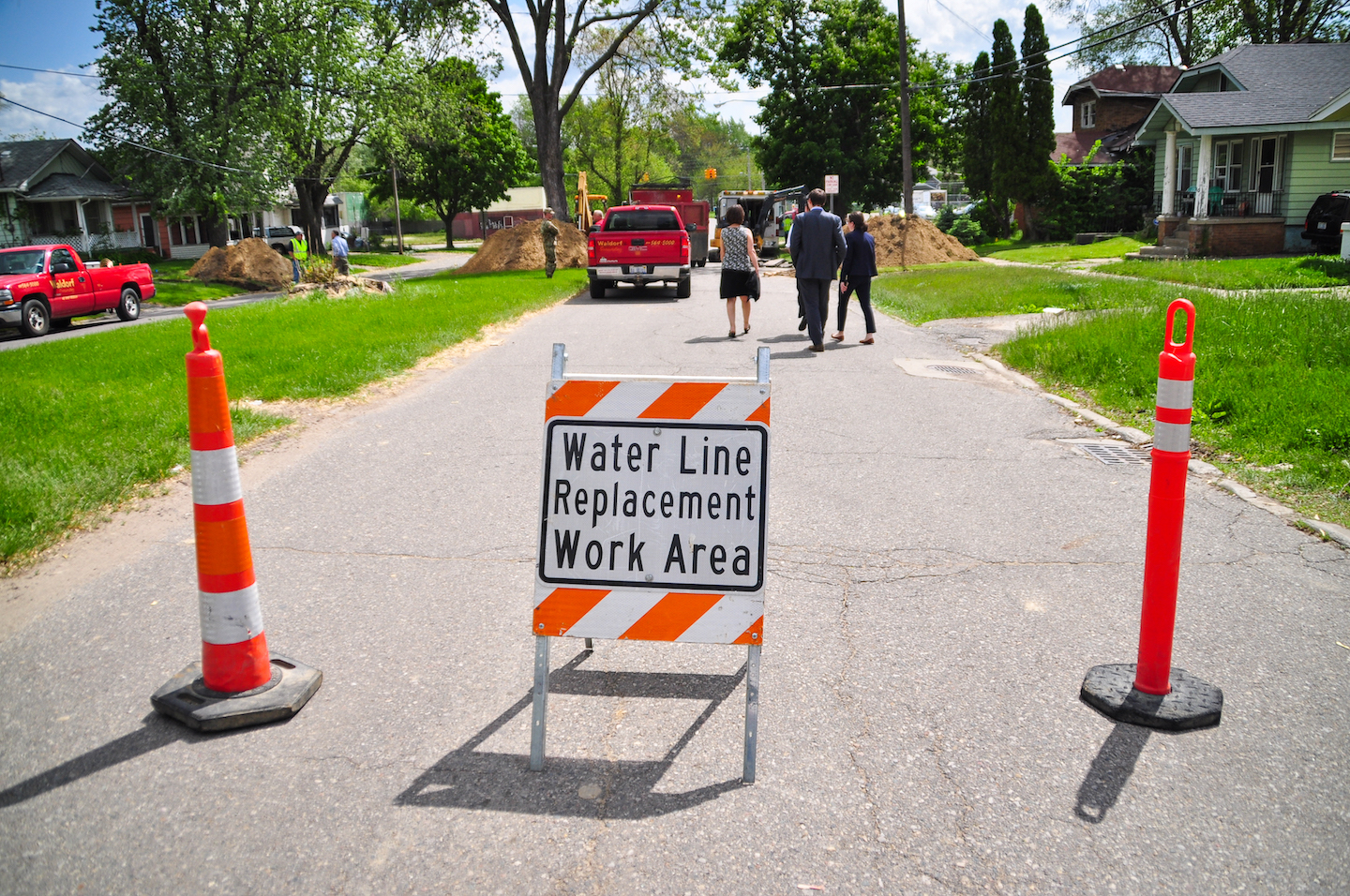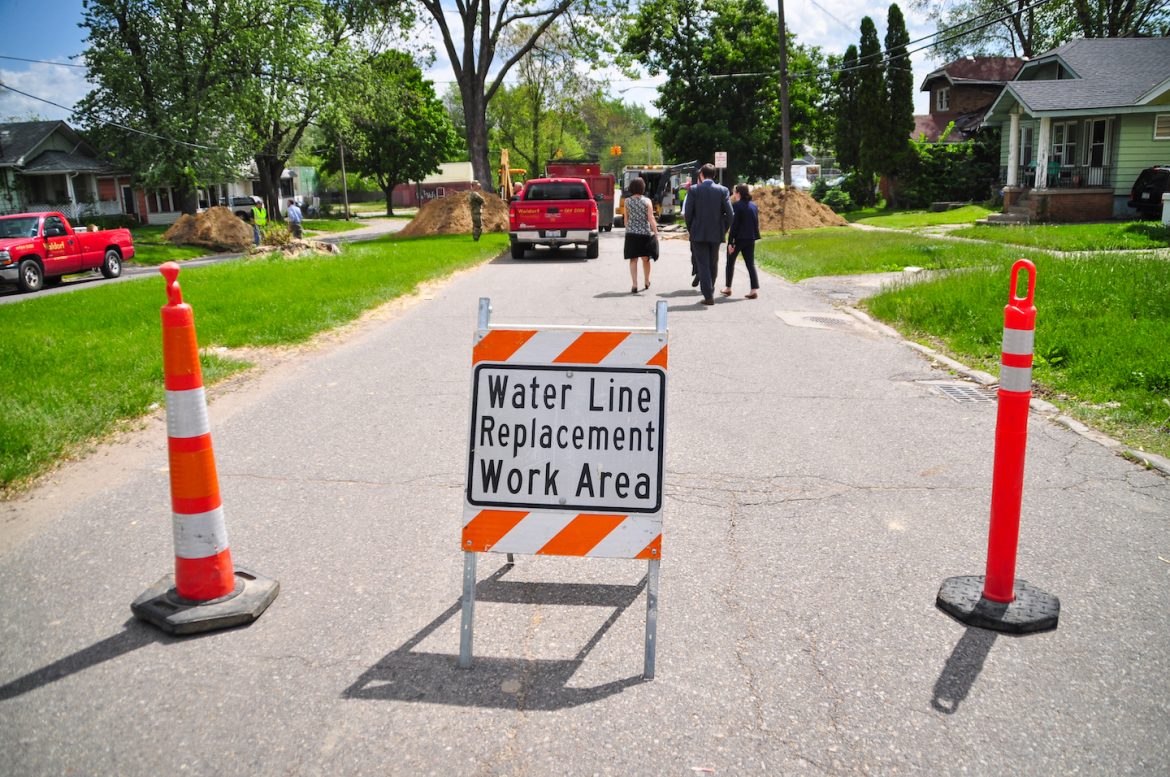Chicagoans face several important choices to establish roots here, from declaring allegiance to the Cubs or Sox, choosing tavern style or deep-dish pizza, and bantering with your neighbor about who the greatest-ever Chicago athlete is; the choices can be extensive. While these choices mostly reflect our personalities, there are other choices residents of Chicago can make that deeply impact their communities.
If you live in the Chicagoland area and you turn on the TV, chances are you will see ads from two candidates currently in the runoff to become the next mayor – Paul Vallas and Brandon Johnson.
One of the issues the candidates will have to face is the enormous problem of getting the lead out of our drinking water. Chicago has the most lead service lines in the country because they were mandated to be installed through 1986. In addition, the lead pipes are putting Chicagoans at risk. A recent Guardian investigation performed for thousands of Chicago residents and found lead in amounts far exceeding the federal standards. There is no safe level of lead, and it has devastating, long-term health impacts on children, which is why Chicago needs to get the lead out ASAP.
Let’s look at what each candidate has to say about getting the lead out of Chicago’s drinking water.
Paul Vallas in a recent commentary in the Chicago Tribune calls lead the real pandemic inflicting, “incalculable damage on successive generations of children.” He also calls for increased access to water filters while embarking on an accelerated campaign to replace lead service lines. He notes that his administration will, “address the immediate and long neglected crisis of lead and PFAX toxic chemicals in our drinking water, by prioritizing investment and activation of funding to improve the abhorrent current rate of pipe replacement and filter provision across the city.”
Brandon Johnson’s website lists the issue of lead service lines as his first issue under environmental justice noting that the issue disproportionately impacts people of color. He also notes that his administration will create a “Green New Deal for Water” by implementing a, “fast, equitable and just replacement of lead service lines to ensure that the supply of water furnished by the City of Chicago to any household shall be safe and made available at an affordable cost.”
In appearances at local forums both candidates have highlighted the prevalence of the problem and the need to move faster to get the lead pipes out of the ground.
At the Rainbow Push Mayoral Candidate Forum on February 11, 2023, the candidates were asked the following question:
“The Natural Resources Defense Council reports high lead levels have been found in water in Baltimore, Detroit, Milwaukee, Newark, NYC, Pittsburg, Washington DC and right here in Chicago. One of their analyses found that between 2018 and 2020, 56% of the US population drank from water systems with detectable levels of lead which impacts the intellectual, physical development of our children and adults. What is your plan to fix and replace lead water pipes throughout the city?
Paul Vallas said, “Well, the first thing you need to do is make sure that every single family has water filtration systems because it’s going to take 50 years, 40 years, I don’t care if it takes five years to replace all the lead pipes, and at the rate they’re going, it’s going to take 500 years. Children are still being poisoned because any, any element of lead does long-term damage. In addition, once you replace the lead pipes, you haven’t solved other problems. For example, the (Chicago) Tribune just issued a report about a month ago that talked about the other cancer-causing agents that are in the water. So, we need to get priority number 1: Water filtration systems in every single household. Not everyone can buy, go out and purchase bottled water or purchase a water filter. It’s the easiest thing to do. That’s what they did in Newark when they embarked upon their lead pipe replacement. They made sure everyone had clean water.”
Brandon Johnson said, “Environmental justice is a big deal in my home. I’ve suffered with asthma growing up and still have challenges there, that’s why I’m committed to not just expanding the Department of the Environment, but making sure that we have a real reflection from the people who are most harmed by it. But it’s also within the first 100 days, it’s important that I pass a cumulative impact study so that we can get a full breath of what’s happening environmentally throughout the city of Chicago. Of course, as a public school teacher, I’ve taught in those buildings where the poison has been delivered, so of course this is an opportunity for us again to put our people to work, to restore and retrofit our buildings, not just so that we clear up the toxicity, but we do it in an equitable way. That becomes a top priority once you all vote for me in a couple of weeks, thank you.”
Both candidates highlight some crucial components on how to get the lead out. Paul Vallas touts the need for filters while residents wait to get the lead pipes out, and he is correct to do so. Until the problem is fixed, people need to have access to water without lead and filters are a necessary stopgap. Brandon Johnson also lifts up another key component to this work – environmental justice and equity. This is extremely important because as we have seen repeatedly in places like Flint, Benton Harbor and Jackson, too many drinking water crises happen in low-income communities and communities of color.
As demonstrated by an NRDC report written in partnership with Environmental Justice Health Alliance and Coming Clean, Watered Down Justice, “water systems that serve the communities that are the most marginalized are more likely to be in violation of the law—and to stay in violation for longer periods of time.”
Luckily, the next mayor of Chicago will already have a blueprint for how to tackle the problem of getting the lead pipes out of Chicago once and for all. For example, in Newark, they city passed an ordinance that mandated the replacement of lead service lines, provided full funding for the construction, and allowed the city to replace the lead line even if they couldn’t locate the property owner to get their consent. Breaking down the bureaucracy allowed the city to replace their 23,000 lead service lines in under three years.
As we learn more about how to continually improve the practice of lead service line replacement, there is a need to capture this progress and improve on it. That’s why we’ve worked with community groups and residents impacted by the lead crisis to capture equitable and efficient ways to address the problem. More info can be found on the Principles for Lead Service Line Replacement page, which will continue to be updated as this work progresses.
The next mayor can lead the way out of Chicago’s drinking water crisis. Will they take concrete steps to make it happen equitably and on an expedited timeframe? We will soon find out.


